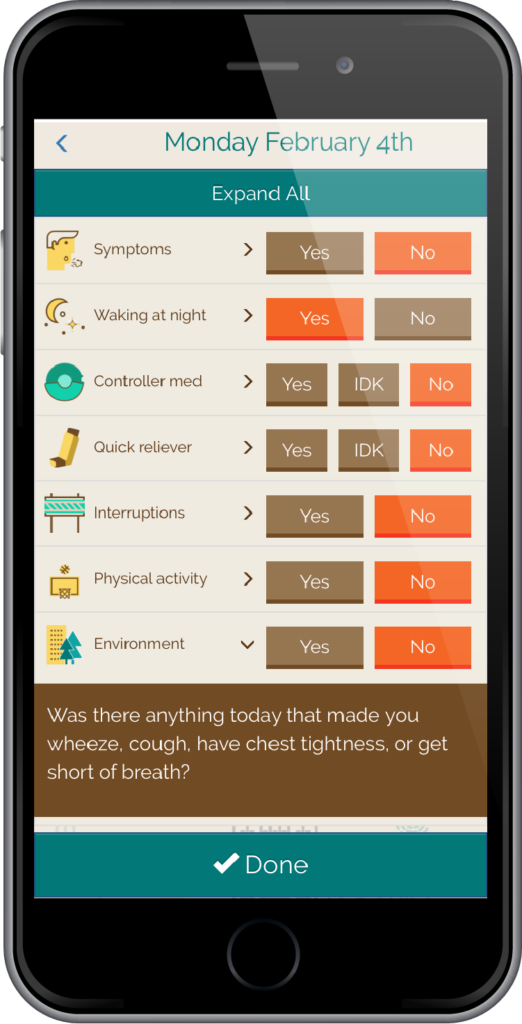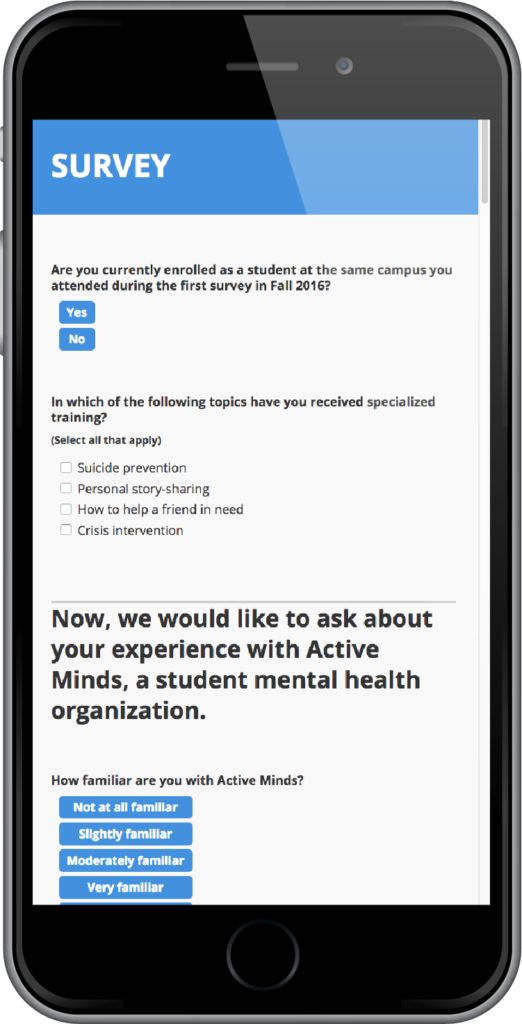Mobile Assessment
User-friendly mobile applications encourage increased participation in your program
Assessments

Ongoing, in-the-moment mobile data collection tracks things like treatment adherence or mood monitoring.

Mobile assessments can be standalone applications or a complement to an online course.

3C’s customized interface lets you create user-friendly assessments for all ages, on iOS and Android devices.
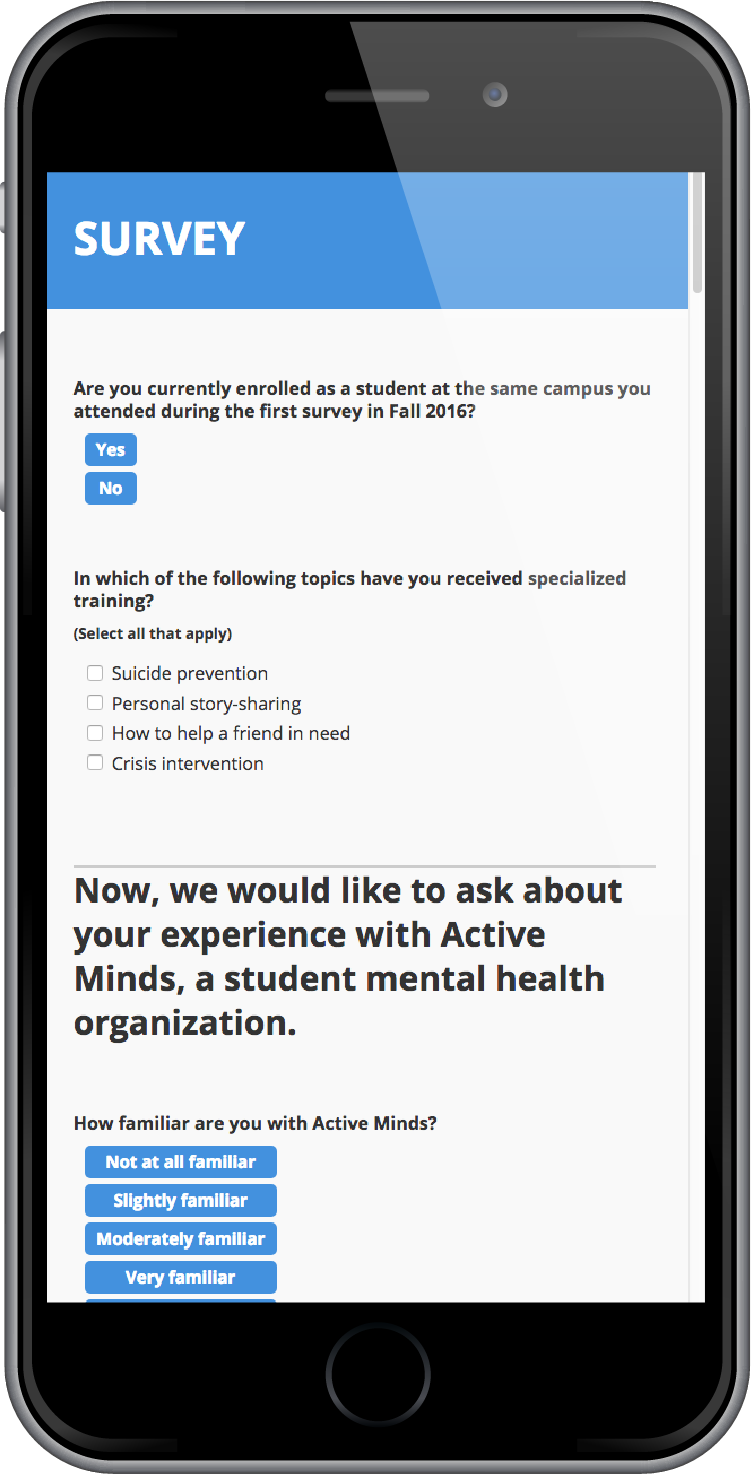
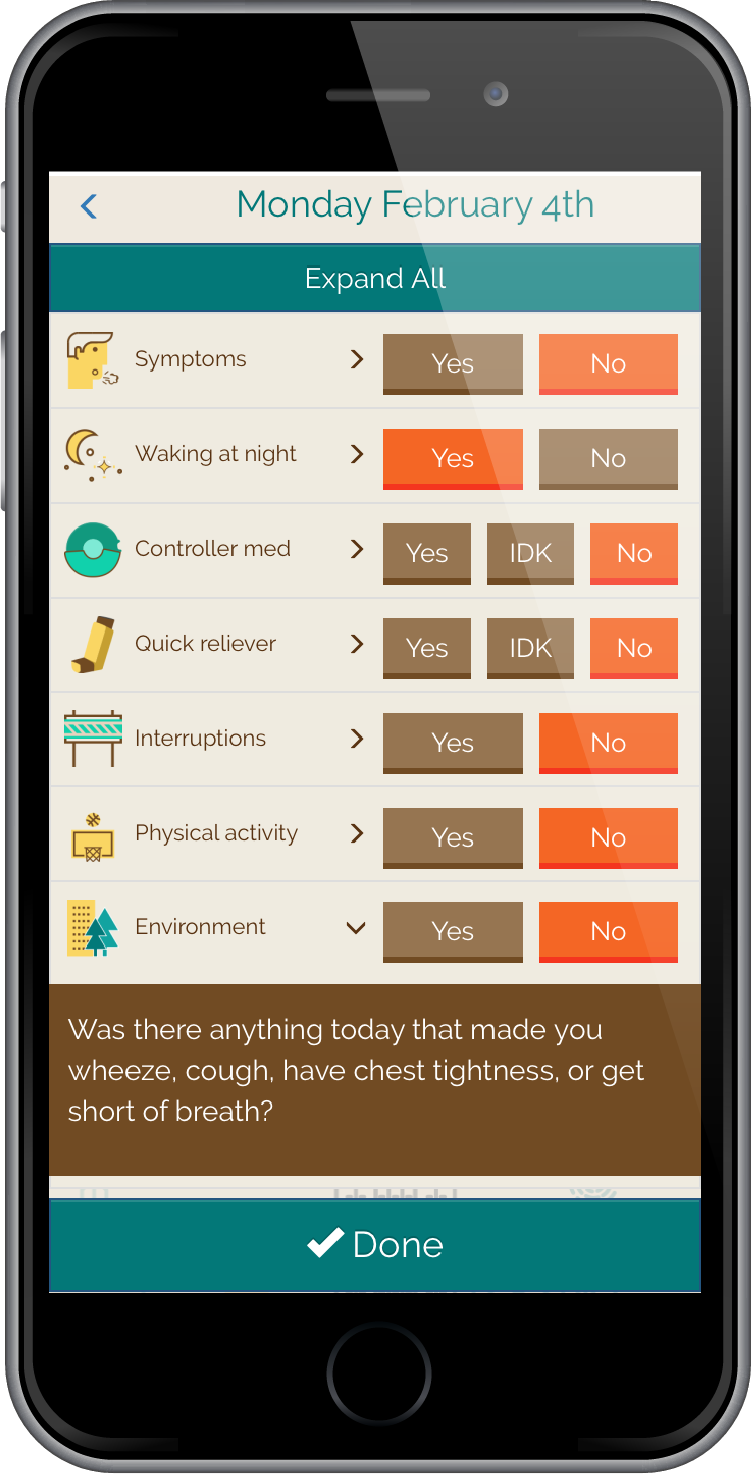
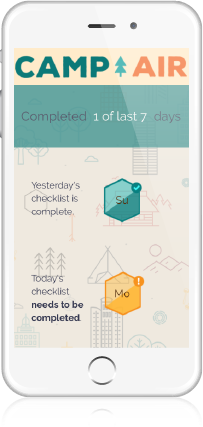
Notifications
Push notifications prompt users to take an action—such as completing a checklist, rating their mood, or reading an education tip. You set the schedule for notifications.
Reporting
Users or providers can view and download a report of their responses.
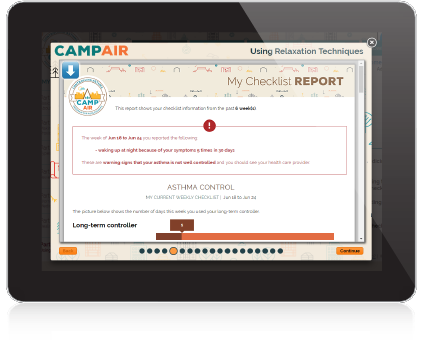
Collaborative development
3C’s team of e-learning professionals will collaborate with you to adapt your content for mobile use and create an assessment tailored to your program objectives and audience.
Share our Mobile Assessment flyer.

